It’s been a long wait for the day that the dubious Gearbox gods would return to show the rest of the industry how making a proper looter-shooter is done. And lo, five years since its last installment, jubilation hath returned to the masses in the form of BORDERLANDS 3: a game replete with the expected menagerie of crazy guns, cell-shaded hyperviolence, Space-Western style, and severely outdated memes. And if the nigh-religious degree of playtime I’ve sunk the past month is anything to go by… it’s pretty fun. At least, as far as the gameplay is concerned.
Unfortunately, gameplay isn’t the focus of this piece. See, for as much as I enjoyed all the chaotic running-and-gunning across different planets with my dubstep-blasting shotgun, there was something about BORDERLANDS 3 that nagged me throughout most of my time chugging through its 50-ish hour campaign. And that, to my surprise, was how much of a downgrade the story was: not enough to completely ruin the experience, but still enough that it left a sour taste in my mouth, wistful for what could have been considering where the franchise has been heading the past decade.
To be clear, I realize that narrative isn’t the part most people flock to the genre for, and that even at their best, the Borderlands games are maybe an 8/10 on the plot-o-meter. But just as the series’ gameplay has become slightly more refined with each iteration, so too has the series’ writing undergone constant evolution, becoming as vital to the franchise’s identity as its wacky firearms and dumb sense of humor. And when something that’s been a “Pretty Good” in the past suddenly dips into “Painfully Average” territory now, it’s probably worth looking at what the hell happened. (Also, it goes without saying that there will be spoilers for the Borderlands games past this point. You’ve been warned.)
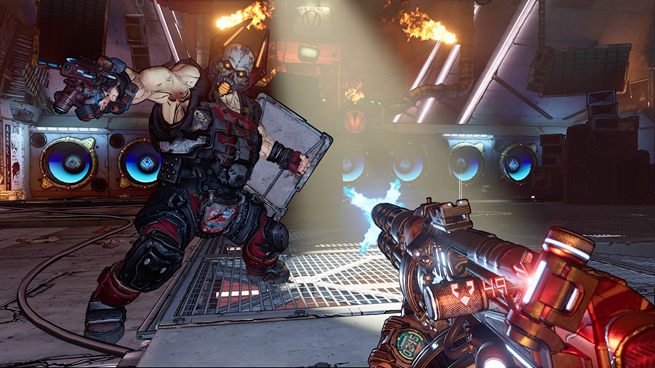
* Aggressive WUB-ing intensifies*
BORDERLANDS 2 saw notable course-correction for the franchise. Not only were the RPG mechanics massively overhauled, but in terms of storytelling, the series got an established (if sometimes grating) tone, fan-favorite NPCs of the first game got expanded personalities past their previously rote functions, and the original set of player-inserts evolved from blank slates to nuanced, active participants of the plot that actively shape it alongside you. The conflict went from clearing a series of loosely-connected dungeons to a mission of revenge against one of the best-written villains in video games.
This growth carried into THE PRE-SEQUEL, which besides being a game-long character study for the last game’s Big Bad and foreshadowing a dramatic conflict for BL3, also gave its player-inserts instanced, personalized banter to events throughout the game’s story, which in turn gave players unique interactions for different play-throughs. And as for TALES FROM THE BORDERLANDS, well…it’s Telltale, so its whole schtick was its character writing to begin with.
The point I’m trying to get across is that there’s been a lot of upward momentum in hyping up this huge, character-centric escapade full of eclectic personalities, all the while broadcasting that these facets would collide together on a grand scale very soon. And when the time came to deliver… they ultimately did jack shit with it. In fact, things kind of regressed.
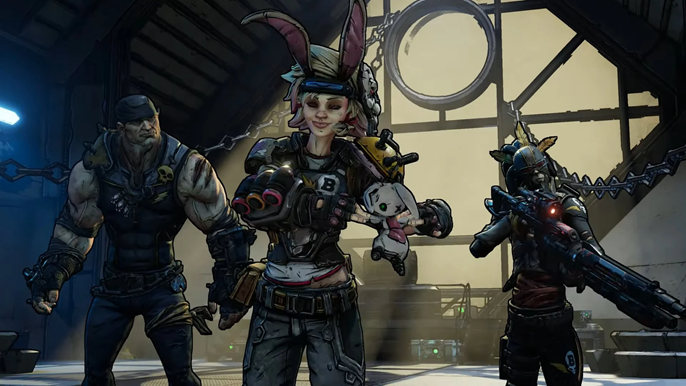
The Gang’s All Here(?)
There are plenty of things for fans to bemoan about the final product we’re given: how the foreshadowing at the end of PRE-SEQUEL feels abandoned, how half the previous PCs and memorable side-cast are missing despite promos insinuating a Sakurai-esque “Everyone is here!” deal, and a supposed “Grrl Power” angle that doesn’t really accomplish much besides kill off half of the important female characters. But what stands out the most blatantly, even from the game’s first few chapters, is how painfully one-note the cast that does appear has become in the five-odd years the franchise has been on hiatus. And I legitimately don’t understand how anyone thought neutering the story’s main appeal would be a good idea.
When you get down to it, the majority of who we’re exposed to lack any of the life or detail present in the games that came before it, mostly operating as cameos or plot contrivance more than actual characters. For returning mainstays like Brick, Mordercai, or Tiny Tina, we experience the former: caricatures of people we expected to see and want to engage with that ultimately retain little of their personality, flanderized and stripped of any importance besides cracking a singular joke before disappearing into the aether. On the other end, we get new characters like Ava, Lorelei, or BALEX projecting the latter: entities seeming to exist solely to push the player to the next stop along the conveyor-belt plot, without evolving past their singular character trait of “whiny teenager,” “likes coffee,” and “Ice-T,” respectively. Neither group really work to endear the audience, interact, grow, or otherwise get us to care about the events they are thrust into. Instead, the game seems to bank on whatever nostalgia we have for the series and its characters to give it a leg to stand on, which ultimately falls apart once the ineffectual fan-service and doubled-down humor wears thin without any variety or contrast to balance things out.
And look, I get it: complex characterization is hard, especially when you’ve got an extensive backlog of people to incorporate and the person most responsible for giving them life leaves for greener pastures. But if past material is anything to go off of, Anthony Burch-related or otherwise, there needs to be something for the audience to latch onto, some level of nuance or purpose to their actions to give us a reason to care about them besides “I’m funny” or “You remember me.” Having every character, returning or otherwise, exist in a vacuum and be the same immature-joke regurgitator is not only annoying because it feels like we’re sitting through someone’s crappy fan-fiction piece rather than an expansion on what came before it, but also because it takes us out of feeling invested with anything happening on-screen, which in turn makes the basic “Save the Planet/Galaxy” plot all the more boring to sit through. Simply put, it’s wasted potential.
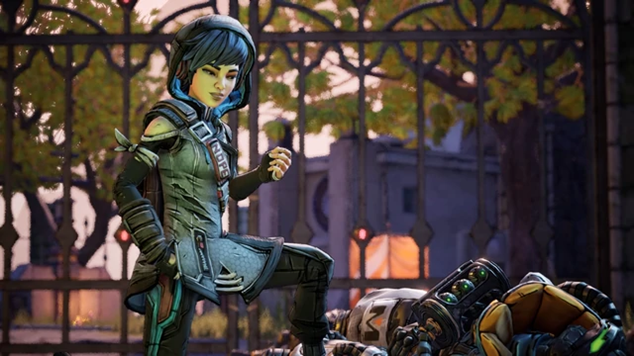
Ava? More like … “Hate Ya.” I should work for Gearbox.
This lack of investment is only compounded by the storytelling’s other big pitfall: how little the player actually matters. When telling a story through a video game format, giving the player a clear, tangible involvement with the narrative is paramount to its enjoyability. It gives us a sense of importance, which in turn generates incentive to stick around for what comes next. But while BORDERLANDS 3 understands this from a gameplay perspective, making the player superficially feel like a badass by mowing down cultists or facing off against practical gods, it ultimately drops the ball by actively robbing the player of their achievements, usually by ejecting their avatar altogether whenever something dramatic needs to happen. Every crucial moment throughout occurs around you rather than at you, and when characters like Lilith or Ava undercut your accomplishments and soak up the limelight despite contributing absolutely nothing, the player is left questioning why they suffered through the plot in the first place.
I won’t pretend that this is the only Borderlands game to ever shun the player character from taking center stage, but at least previous installments understood that it should at the bare minimum string the player along, even if the focus was given to someone else. In BORDERLANDS 2, even if the spotlight was primarily on Handsome Jack and the first-gen Vault Hunters, the player still felt involved because there were elements of the story that acknowledged the role they played: the villain used them to screw over the other Vault Hunters, acknowledged them over everyone else when they become a consistent thorn in his side, and was ultimately put down by their hands. There’s a succinct through-line in making the player’s actions affect the story, an escalation of importance the longer we engage with the world and its characters. Even if the story obviously had a direction it was gunning for, it made the player feel like it couldn’t have happened without their inclusion.
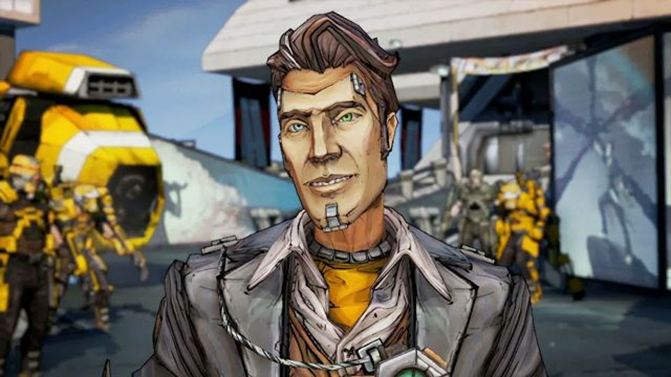
He really was the goddamn hero.
But BORDERLANDS 3 clearly doesn’t want or need you to tell the story that it wants to. When the Calypsos reveal themselves for the first time and do their douche-y YouTuber schtick, it’s isolated, along with Lilith. When you impede their progress of taking over the Great Vault and kill all of their lieutenants, it’s met with a resounding “eh, whatever” and the Calypsos get what they wanted anyway. And when you get thrown into a cutscene involving the death of one of the few characters the writers deemed special enough to warrant one, you cannot do a damned thing about it. Not because the villains are so powerful that they are able to incapacitate you or otherwise find a way to stop you and make you feel helpless in a meaningful way, but because you simply aren’t important enough to even be included. And no matter how many times the Calypsos call you “Superfan,” the player is just as much a disposable prop as everyone else.
When all is said and done, the ultimate sin that BORDERLANDS 3’s story commits is that it never truly invests the player in the story it’s trying to tell, never seeks to progress down the path its predecessors laid before it and mostly just coasts on our goodwill towards the franchise. And while the majority of this game’s audience will still linger on and find joy through the hours we spend collecting loot and trying out new builds, myself included, the part that invariably made the series feels unique from its contemporaries, its vibrant cast and engaging storytelling, just doesn’t really stand tall in the way it could have. This ain’t no place for heroes to call home anymore, but I sincerely hope that it can be again in the future.


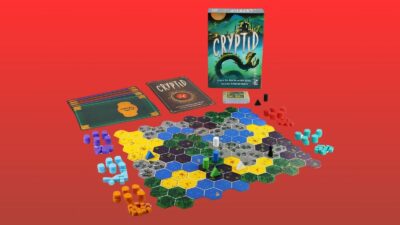

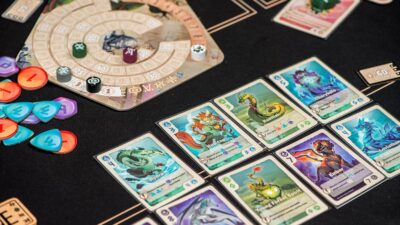
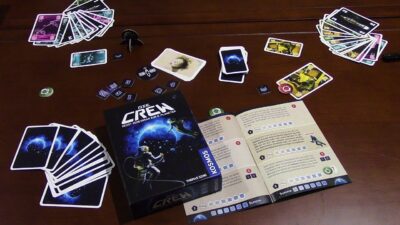
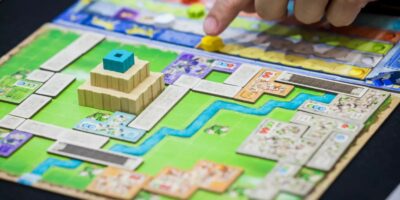
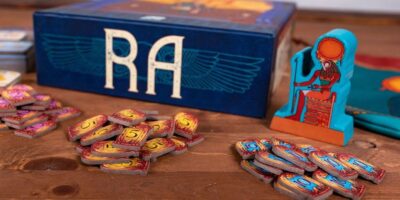
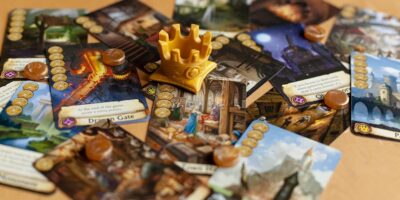
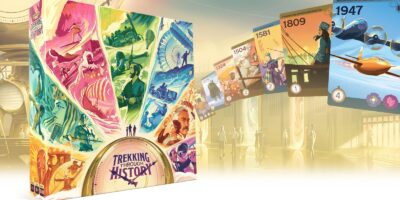

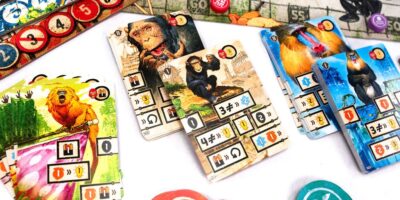




Comments